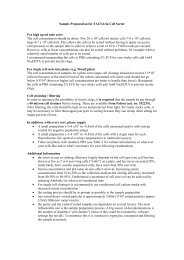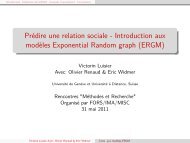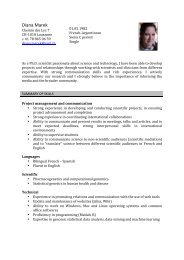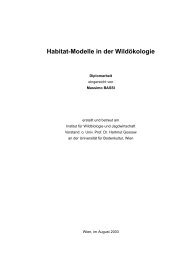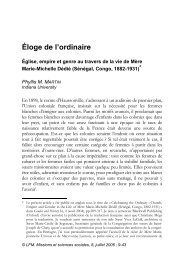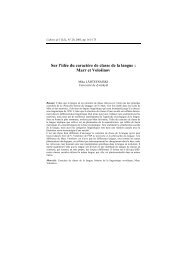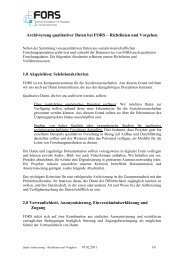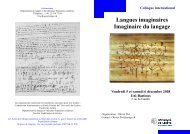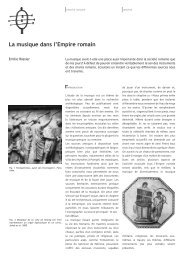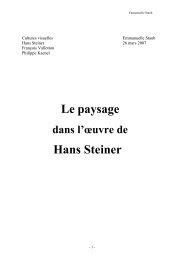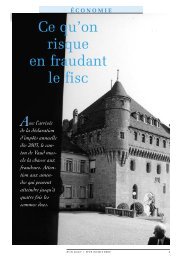conference programme book - European Survey Research ...
conference programme book - European Survey Research ...
conference programme book - European Survey Research ...
Create successful ePaper yourself
Turn your PDF publications into a flip-book with our unique Google optimized e-Paper software.
126 THURSDAY 21 JULY3.9.1 Panel Arion Arising from a Switch of Fieldwork Agencies in the IAB Household Panel Study PASSG. Mueller 11 Instute for Employment <strong>Research</strong>, GermanyOngoing longitudinal surveys seldom switch fieldwork agencies between waves. The possible effects of sucha change are difficult to esmate in advance and have, unl now, rarely been explored. In addion, dataprivacy statements hamper the switch between fieldwork agencies in pracce. Against this backdrop, thisarcle documents the change of fieldwork agency in the IAB Household Panel Study ”Labour Market and SocialSecurity” (PASS). As in most other academic surveys within the Federal Republic of Germany, the householdsto be surveyed in PASS were ensured in advance in wring (”Datenschutzbla”), among other things, that theirname and address data would not be passed on to third pares...3.9.2 <strong>Survey</strong> Burden, arion and alteri parcipaon in the pairfam panelU. Krieger 11 SHARE MEA University of Mannheim, GermanyThe German family panel study is an annually conducted panel survey of individuals. In addion to the mainrespondents and their partners, since wave two their parents and their children are also approached for aninterview. The aim of this design is to draw an accurate picture of the family situaon of the survey respondent.The main respondent has a gatekeeper funcon in providing access to the alteri respondents connectedto them by facilitang or declining informaon and or consent to interviews on their partners, parents andchildren.3.9.3 Re-engaging with survey non-respondents: Evidence from three household panelsN. Watson 1 , M. Wooden 11 University of Melbourne, AustraliaMost analyses of non-response in longitudinal surveys are concerned with the decisions respondents make toconnue parcipaon. Yet a poron of the fieldwork effort is spent in re-engaging non-respondents with thesurvey, resulng in non-monotonic arion. This suggests that analyses of the decision to connue parcipaonneeds to be complemented with analyses of the decision taken to recommence parcipaon. Are thedesign features and fieldwork pracces that we adopt to encourage connued parcipaon also appropriateto encourage non-respondents to be re-interviewed at a later wave?3.9.4 ”I sll don’t know”: Non-substanve responses in longitudinal dataR. Young 1 , D. Johnson 11 The Pennsylvania State University, United StatesThe presence of item non-response in longitudinal data is typically regarded as a nuisance that may bias stas-cal inference. <strong>Research</strong>ers have rarely considered the possibility that some types of non-substanve responsein fact may offer informave missing data in a longitudinal framework. In this paper we use two waves of theNaonal <strong>Survey</strong> of Midlife in the United States (n = 7,108) to explore whether ”Don’t know” (DK) responsepropensity is consistent among individuals over me. The stability and predicve power of DK responses fromone survey wave to the next may have important implicaons for survey design features, methods for reducingunit and item non-response, and predicng future panel arion. Uncorrelated DK responses over me mayindicate contextual survey factors rather than reflecng a stable personal trait...3.10 Macro Mechanisms and Macro Hypotheses IITo be held on July 21, 2011 from: 09:00 to 10:30, in room 413.Coordinated by:



